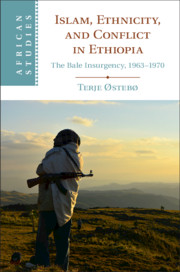Refine search
Actions for selected content:
10 results
9 - On the Primacy of Peoplehood
-
-
- Book:
- The Cambridge Companion to Rousseau's <i>Social Contract</i>
- Published online:
- 28 March 2024
- Print publication:
- 22 February 2024, pp 179-206
-
- Chapter
- Export citation
5 - Popular Sovereignty on Trial
- from Part I
-
-
- Book:
- When the People Rule
- Published online:
- 23 November 2023
- Print publication:
- 09 November 2023, pp 91-110
-
- Chapter
-
- You have access
- Open access
- HTML
- Export citation
The Risks and Benefits of National Stories
-
- Journal:
- Ethics & International Affairs / Volume 36 / Issue 4 / Winter 2022
- Published online by Cambridge University Press:
- 22 December 2022, pp. 413-425
-
- Article
-
- You have access
- Open access
- HTML
- Export citation
1 - Introduction
-
- Book:
- Islam, Ethnicity, and Conflict in Ethiopia
- Published online:
- 28 September 2020
- Print publication:
- 01 October 2020, pp 1-33
-
- Chapter
- Export citation
8 - Christianity, Nation, and Amhara Peoplehood
-
- Book:
- Islam, Ethnicity, and Conflict in Ethiopia
- Published online:
- 28 September 2020
- Print publication:
- 01 October 2020, pp 209-233
-
- Chapter
- Export citation
10 - Islaama vs Amhara and the Making of Local Antagonism
-
- Book:
- Islam, Ethnicity, and Conflict in Ethiopia
- Published online:
- 28 September 2020
- Print publication:
- 01 October 2020, pp 259-287
-
- Chapter
- Export citation

Islam, Ethnicity, and Conflict in Ethiopia
- The Bale Insurgency, 1963-1970
-
- Published online:
- 28 September 2020
- Print publication:
- 01 October 2020
5 - Deparochializing Political Theory from the Far Eastern Province
-
-
- Book:
- Deparochializing Political Theory
- Published online:
- 15 March 2020
- Print publication:
- 02 April 2020, pp 120-148
-
- Chapter
- Export citation
12 - In Defense of Property
- from Part III - Property
-
-
- Book:
- Reading American Indian Law
- Published online:
- 11 December 2019
- Print publication:
- 12 December 2019, pp 285-306
-
- Chapter
- Export citation
In the Name of the People: Disagreeing over Peoplehood in the North and South Korean Constitutions
-
- Journal:
- Asian Journal of Law and Society / Volume 4 / Issue 2 / November 2017
- Published online by Cambridge University Press:
- 15 December 2016, pp. 405-445
-
- Article
-
- You have access
- HTML
- Export citation
